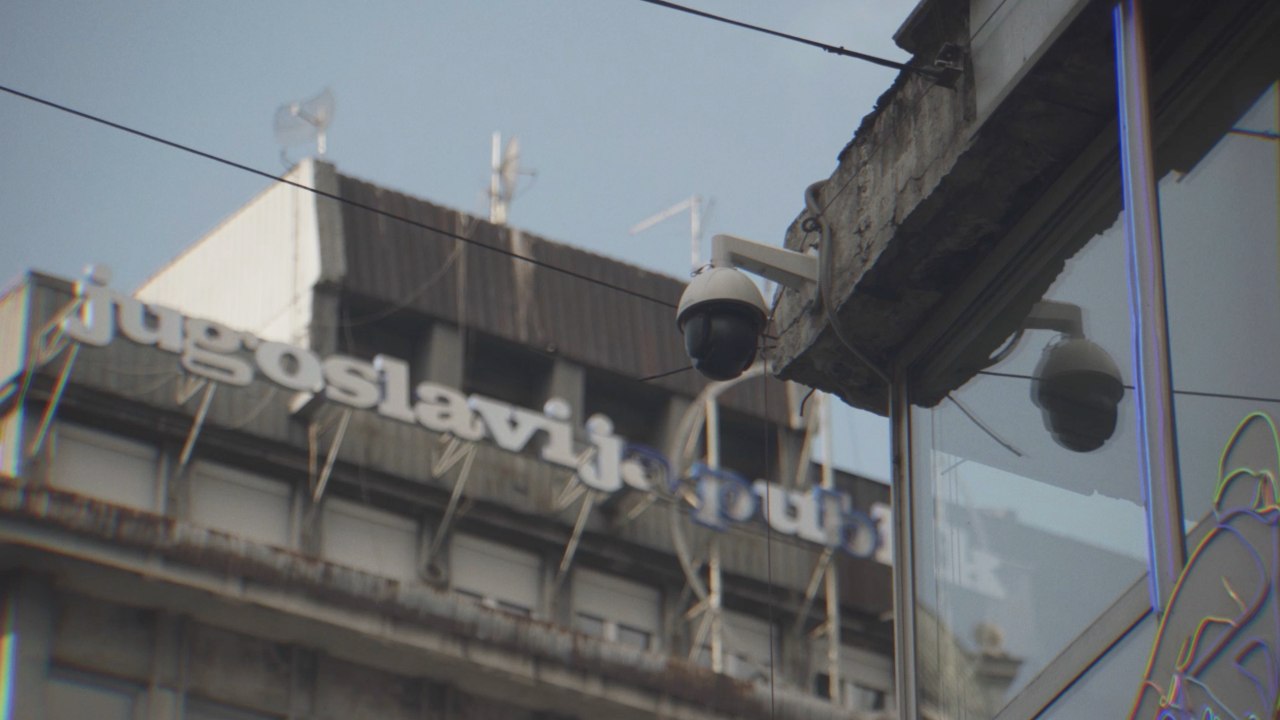Police did little to intervene. But plainclothes bystanders took pictures with unusual high-resolution technology looking similar to Huawei’s Intelligent Large-Screen Handheld Trunking Terminal. A few days later, independent media reported dozens of fines issued for obstructing traffic, apparently without any “stop and identify” procedure.
The installation of Chinese-supplied facial recognition technology underlines how the Balkan country is becoming increasingly authoritarian. It also illustrates Chinese attempts to help fuel its style of surveillance in Europe – and the strong resistance to such moves from citizens.
In 2009, the Chinese and Serb governments signed an agreement on economic and technical cooperation to create a “Safe Society,“ enhancing ICT systems while “providing solutions to increase the security of citizens.“ Five years later, the Serbian Interior Ministry and Huawei signed the Memorandum of Understanding for the implementation of the “Safe Society.“
The Chinese technology soon made its way into Serbian public security systems. In 2019, officials announced the purchase of equipment, cameras, and software from Huawei to ensure better traffic control and more efficient policing. Police installed several thousand smart cameras throughout Belgrade, gradually expanding the network to highways and main roads, police cars, and officers’ body cams. The authorities admitted that these cameras contained facial recognition capabilities.
Human rights researchers filed Freedom of Information requests. They managed to reconstruct the Belgrade project from Huawei’s official web pages. But when they alerted the Serbian public, the incriminating web pages vanished.
Researchers, human rights advocates, and activists in Serbia soon formed a “thousand cameras“ initiative. Members of the initiative led by the SHARE Foundation demanded public debate and enforcement of the country’s strict privacy laws, which are fashioned after Europe’s General Data Protection Regulation (GDPR). The Interior Ministry responded by rewriting its Data Protection Impact Assessment twice, both times failing to meet requirements as assessed by the Serb Data Protection Commissioner.
Despite the COVID-19 pandemic, the public campaign against surveillance gained traction. Citizens mobilized to document smart cameras installed in their neighborhoods.
But the government remained undeterred. In late summer 2021, only a few days before the formal closure of public debate, the Serb CSOs found out about a hastily written proposed new law on internal affairs that contained several provisions on mass biometric surveillance. In other words, three years after it began installing smart cameras in Belgrade, the government decided it was time to find legal grounds for their deployment.
A public outcry ensued. Regional and European activists protested. A few weeks after proposing a new law, the Interior Ministry withdrew the draft. A series of consultations are ongoing with various stakeholders. The outcome is yet uncertain.
In the meantime, the physical components of the mass biometric surveillance system – smart cameras, alongside supposedly expensive equipment – remain visible in the streets. Unknown deals with Huawei might entail more than just “enhancing“ local security systems.
In September 2020 the Chinese tech giant opened its center “for innovation and digital development“ in Belgrade, assuming the “central role in the digital transformation of the entire [Western Balkan] region.” Three months later, Huawei signed an “equipment and data storage contract“ with the state-owned national data center in Kragujevac to “offer more ICT services to countries of the region and all of Europe.“
Huawei has played a clever PR game. In its announcement of the new research center, it leverages such goals as “Talent nurturing,” “Ecosystem,” “Smart solutions,” “Localization,” “Agile innovation,” and, in a smart nod to local ethnic pride, the “Tesla” effect after the famed Serb-American inventor.
Did Huawei secure access to Serb facial recognition data? No one knows. But it remains a chilling possibility.
Dr. Đorđe Krivokapić is an assistant professor at the Faculty of Organizational Sciences at the University of Belgrade, where he teaches courses in commercial and information technology law and on ethics.
Bandwidth is CEPA’s online journal dedicated to advancing transatlantic cooperation on tech policy. All opinions are those of the author and do not necessarily represent the position or views of the institutions they represent or the Center for European Policy Analysis.





